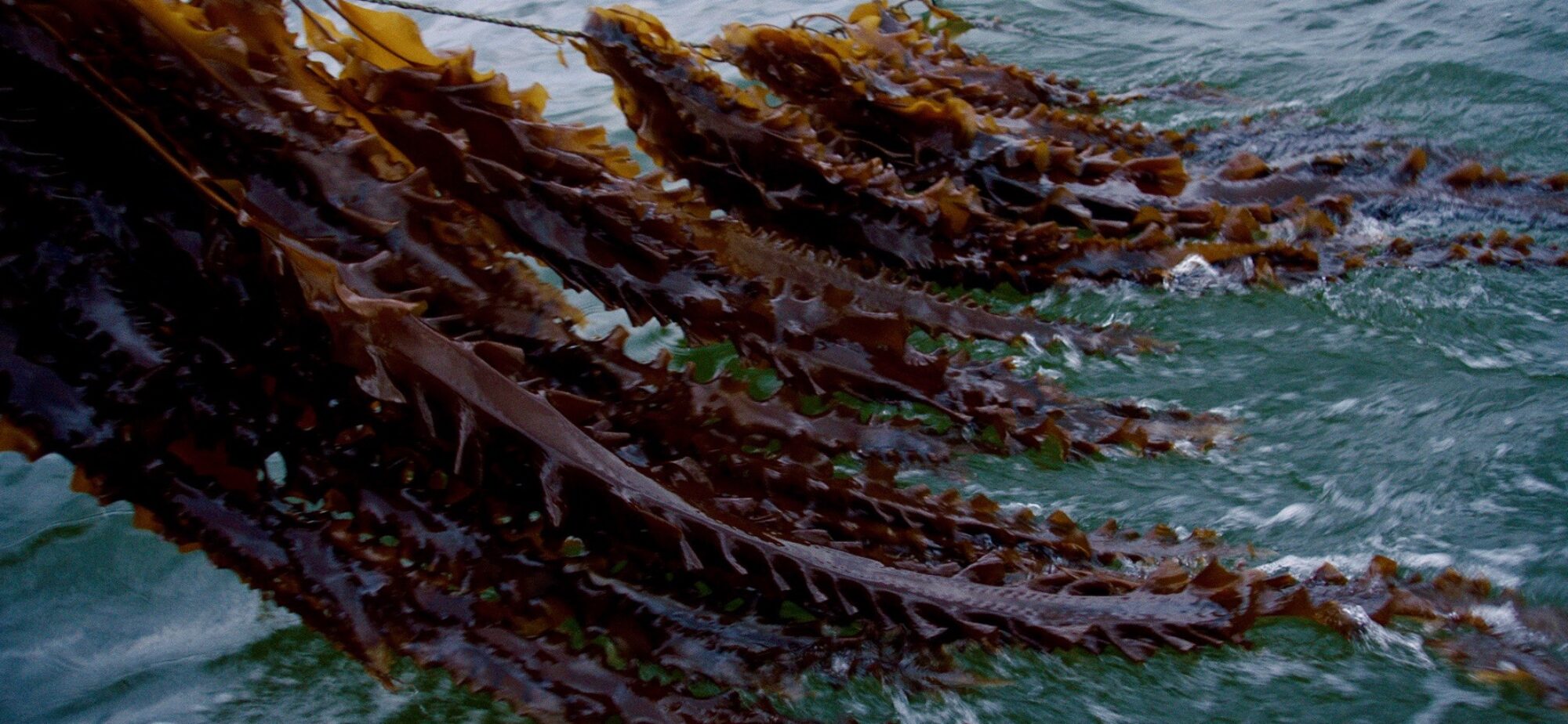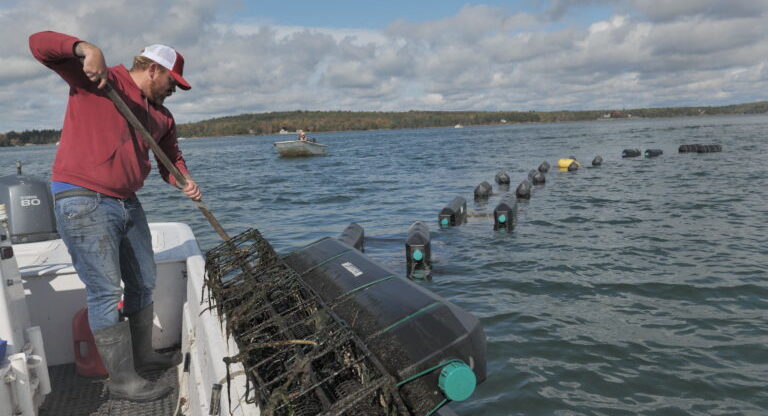 Maine aquaculture group one of 45 to divvy up USDA’s $24m for farmer training
Maine aquaculture group one of 45 to divvy up USDA’s $24m for farmer training
Undercurrent News, 11/30/22 – ” The Maine Aquaculture Association (MAA) announced this week that it’s one of 45 groups that will divvy up a combined $24 million in grant money from the US Department of Agriculture to help train beginning farmers and ranchers. MAA will get $91,000 for its project, ‘Leading Maine’s Beginning Aquaculture Farmers to a Sustainable Business Future’, according to the trade association.”
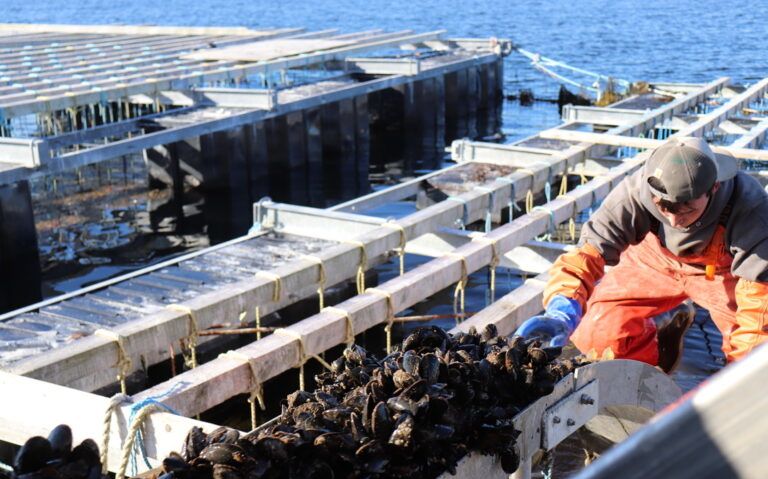 SWIMMING UPSTREAM: FIRST AQUACULTURE APPRENTICESHIP PROGRAM IN U.S. LAUNCHES IN MAINE
SWIMMING UPSTREAM: FIRST AQUACULTURE APPRENTICESHIP PROGRAM IN U.S. LAUNCHES IN MAINE
Mainebiz, 11/16/22 – “Maine aquaculture is among the most diverse sea farming sectors in the nation, producing more than 25 species of finfish, shellfish and sea vegetable — more than any other U.S. state, according to the Maine Aquaculture Association. In response to the growing industry, workforce development has become a primary focus for the aquaculture industry and, to that end, an apprenticeship program that is the first of its kind in the nation launched this week. The program was formed after the U.S. Department of Agriculture’s National Institute of Food and Agriculture awarded a $500,000 grant in January to Portland nonprofit Gulf of Maine Research Institute to develop various aquaculture workforce training programs.”
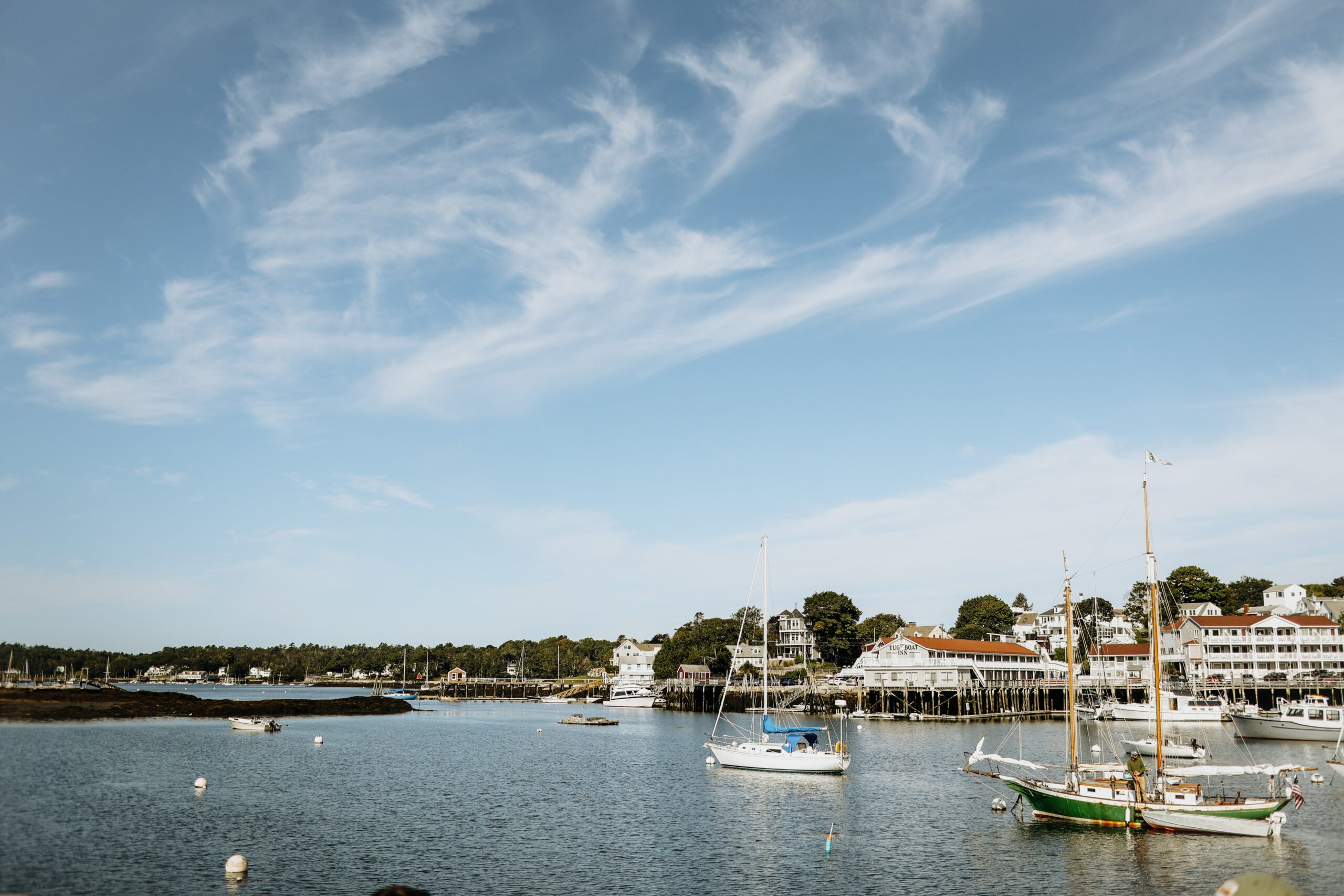 MAINE ORGANIZATIONS ARE HELPING FISHERMEN START AQUACULTURE FARMS
MAINE ORGANIZATIONS ARE HELPING FISHERMEN START AQUACULTURE FARMS
National Fisherman, 11/15/22 – “A group of aquaculture organizations in Maine today opened registration for a training program designed for fishermen to learn how to farm seafood. Maine’s vibrant working waterfront, including aquaculture, builds resilience for generations of Maine’s fishing families, who have long navigated the waters to feed our community. Hosted by Coastal Enterprises, Inc. (CEI), Maine Aquaculture Association (MAA), Maine Aquaculture Innovation Center (MAIC), and Maine Sea Grant (MSG), the Aquaculture in Shared Waters training program focuses on the cultivation of commercially valuable species including oysters, mussels, scallops, and kelp.”
 KINGFISH MAINE PROJECT GETS LOCAL GO-AHEAD
KINGFISH MAINE PROJECT GETS LOCAL GO-AHEAD
Fish Farmer Magazine, 10/24/22 – “In a significant move, the community of Jonesport, close to where the RAS (recirculating aquaculture systems) facility will be built has approved Kingfish Maine’s construction application. Kingfish said today: ‘With the Kingfish Maine project fully permitted by state and federal regulatory agencies, this local building permit is the final step required for Kingfish to begin pre-construction design and engineering on its new facility in the US. The town of Jonesport is now drafting its findings of fact and the Planning Board is expected to formally adopt and sign the building permit in early November.'”
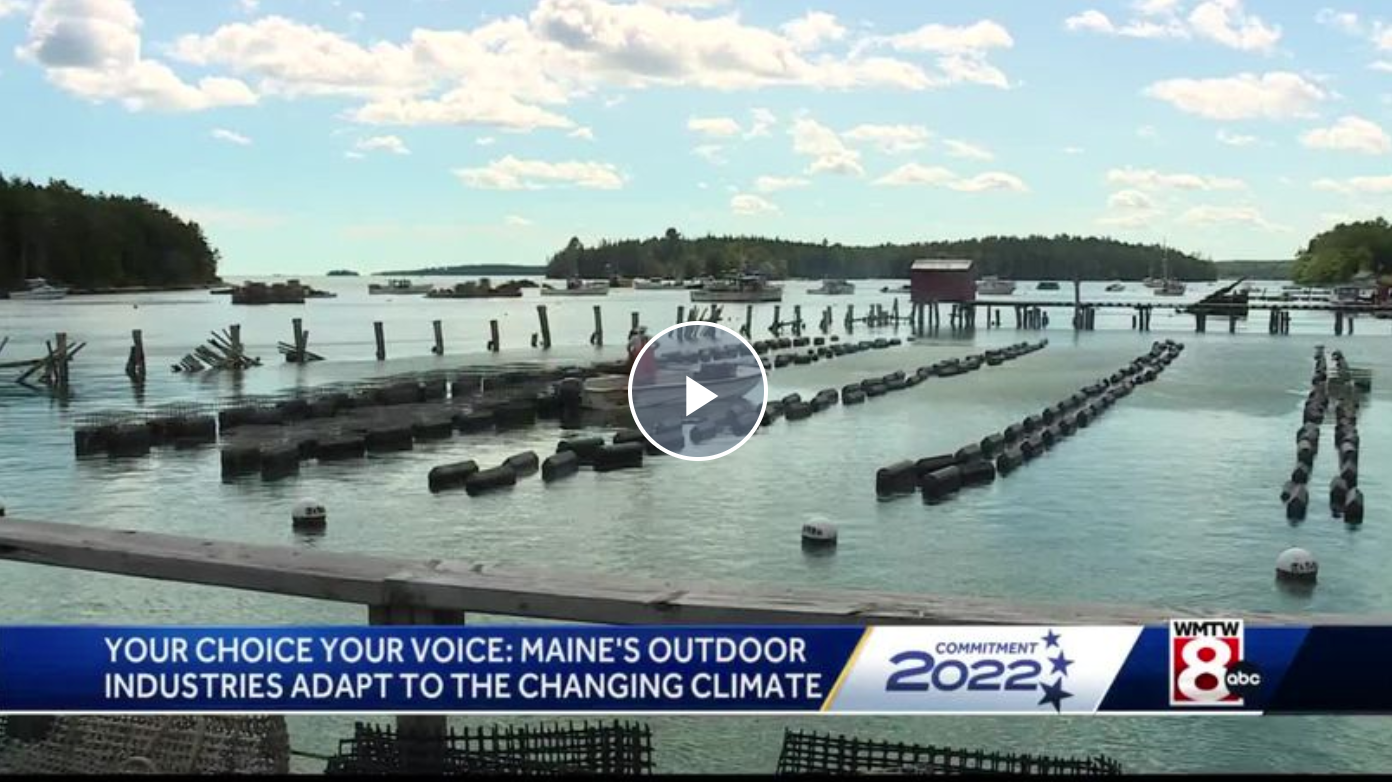 YOUR CHOICE, YOUR VOICE: MAINE’S ICONIC INDUSTRIES ARE FORCED TO ADAPT TO CLIMATE CHANGE
YOUR CHOICE, YOUR VOICE: MAINE’S ICONIC INDUSTRIES ARE FORCED TO ADAPT TO CLIMATE CHANGE
WMTW-8, 10/19/22 – “Lobster pounds were once a staple of Maine’s shellfish industry, but the pounds, which are used to store and breed lobsters, are now largely extinct due to warming waters. Working waterfronts like Community Shellfish in Bremen have converted lobster pounds into oyster farms, which are far more friendly to warm water. ‘We basically repurposed an obsolete asset to take advantage of global warming,’ said Boe Marsh, the owner of Community Shellfish. ‘I think we are hedging our bets and we are also getting into an industry that has real potential.’
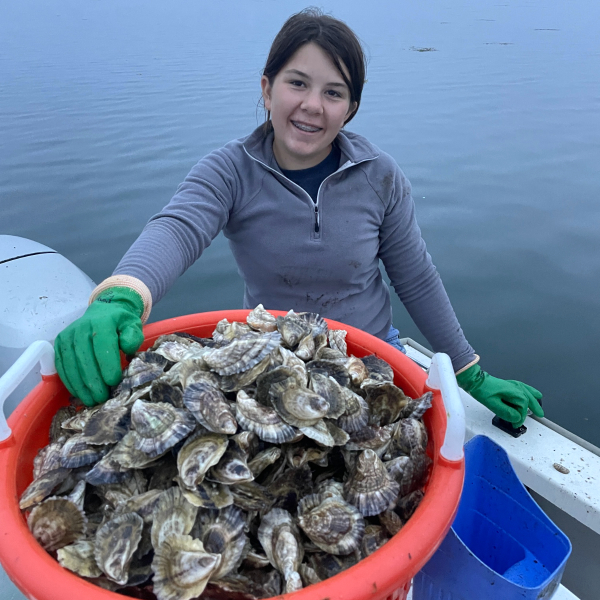 An Oyster Farmer Carrying on the Family Business
An Oyster Farmer Carrying on the Family Business
Civil Eats, 10/13/22 – “When she’s not doing schoolwork or playing field hockey, 15-year-old Gaby Zlotkowski can be found working with oysters: flipping cages, harvesting, shucking, and more. It’s not uncommon for teens to help with the family business, but the island town of Isleboro, Maine, about 100 miles northeast of Portland, is primarily lobster country. It’s all the more notable that Zlotkowski was a driving force not only behind her mom starting Isleboro Oyster Company, but is also now pursuing an oyster and kelp farm of her own. ‘Growing up on an island where there’s only really lobstering, I thought [the oyster farm] would be a really good opportunity for our family—and I’d get oysters whenever I wanted,’ Zlotkowski said.”
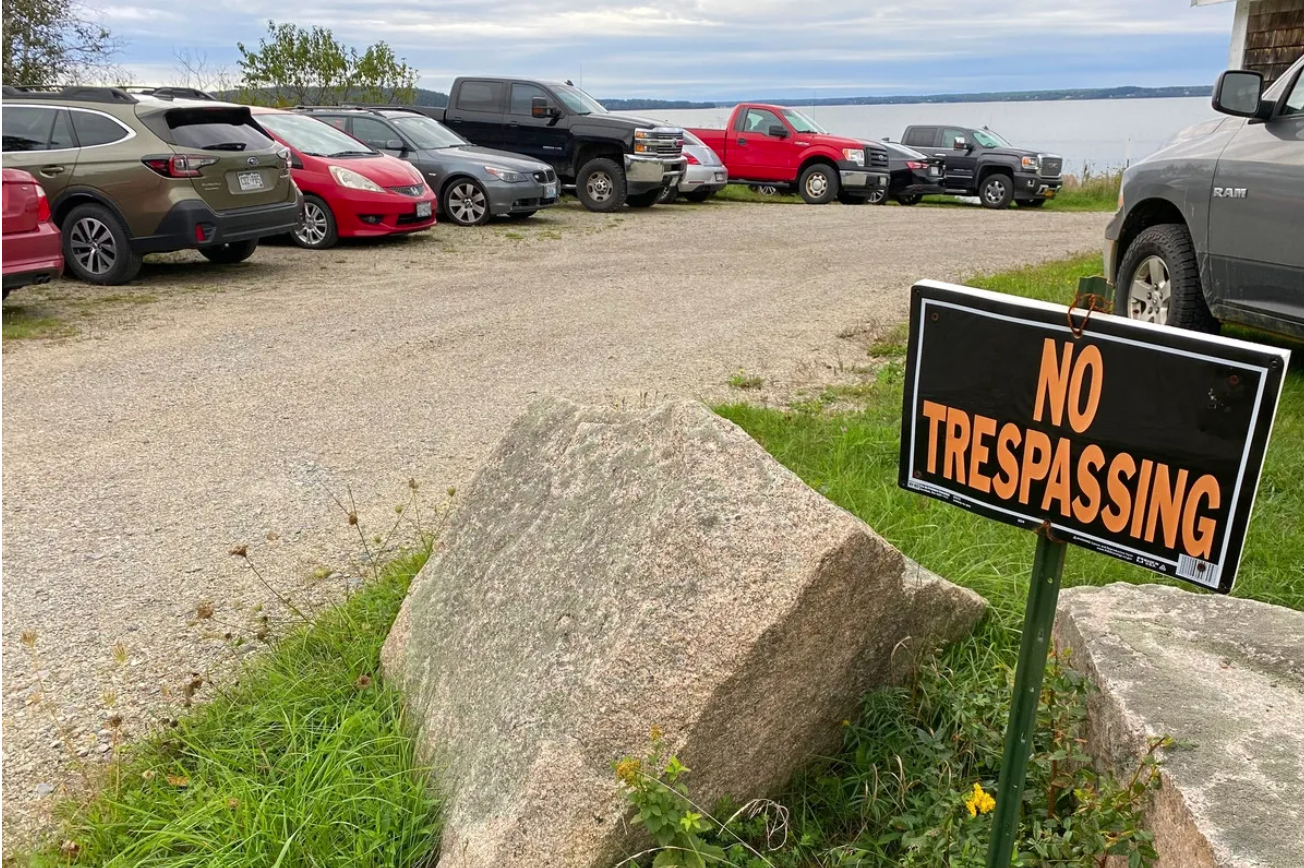 WEALTHY OWNERS OF A PRIVATE MAINE ISLAND ARE FIGHTING DEVELOPMENT AND TAXES
WEALTHY OWNERS OF A PRIVATE MAINE ISLAND ARE FIGHTING DEVELOPMENT AND TAXES
Bangor Daily News, 10/12/22 – “The relationship between the seasonal residents of Roque Island and Jonesport town officials has soured over the past several years — and a land-based fish farm proposal is making it worse. Through legal filings, the Roque Island Gardner Homestead Corporation has opposed financial and economic measures that Jonesport town officials have pursued or supported. It has appealed the island’s property tax bills, and also gone to court to keep seaweed harvesters off their shores. These decisions — and whether Kingfish Maine should be given approval for building a $110 million dollar fish farm in the town — have considerable economic implications for Jonesport and surrounding towns where good-paying jobs are in short supply.”
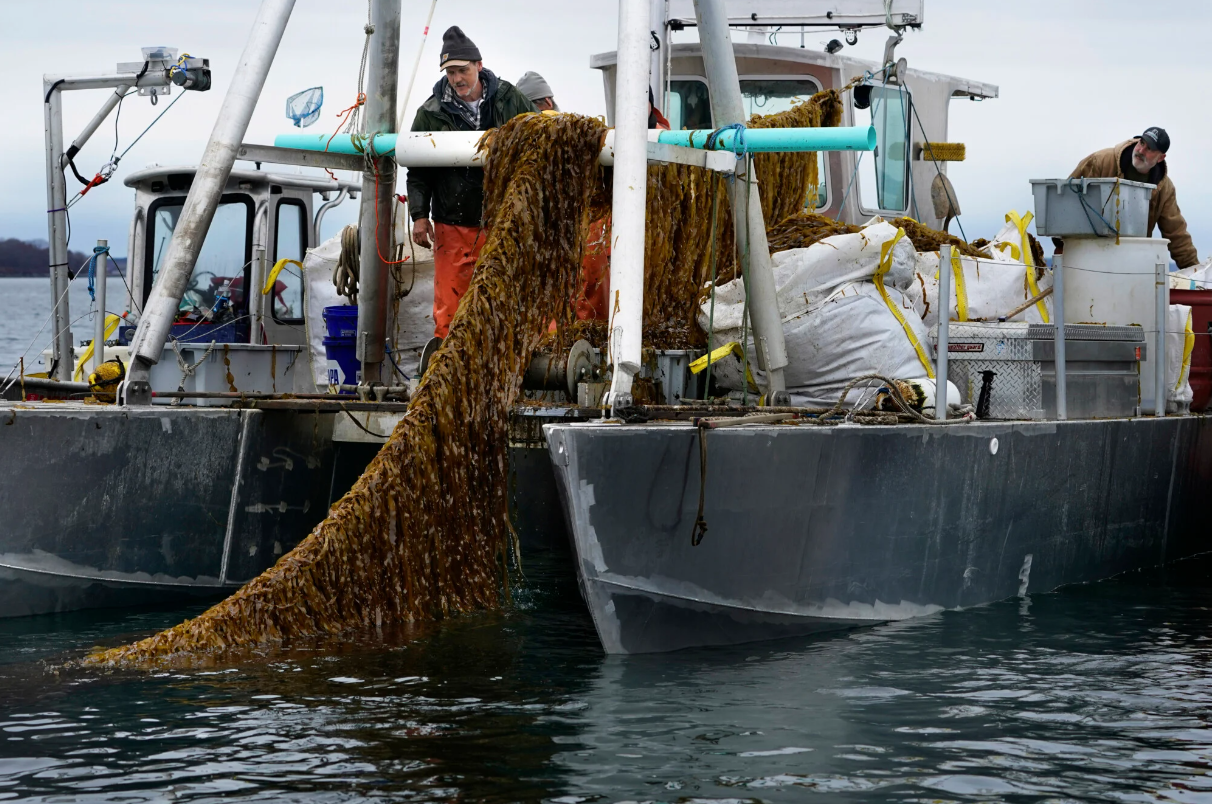 MAINE SEAWEED COMPANY BIDS FOR MORE GROWTH, SIGNS DEAL WITH BUSINESS BACKED BY CELEBRITY CHEF
MAINE SEAWEED COMPANY BIDS FOR MORE GROWTH, SIGNS DEAL WITH BUSINESS BACKED BY CELEBRITY CHEF
Portland Press Herald, 10/3/22 – “A 2017 benchmark study by the Maine Aquaculture Association found that only 1 in 6 seaweed farms were profitable, so it was initially a hard sell to get people interested. ‘I think their guarantee to buy from partner farms are critical, especially for new farmers who are learning as they go,’ said Sebastian Belle, executive director of the Maine Aquaculture Association. ‘By guaranteeing to buy the product, Atlantic Sea Farms significantly reduces the risk to the farmer that they will invest time and money and then not be able to sell the product [. . .] I think it is pretty clear that well-run farms are profitable because more and more working waterfront families are getting into it,’ Belle said. ‘If it was not profitable they would not take the risk.'”
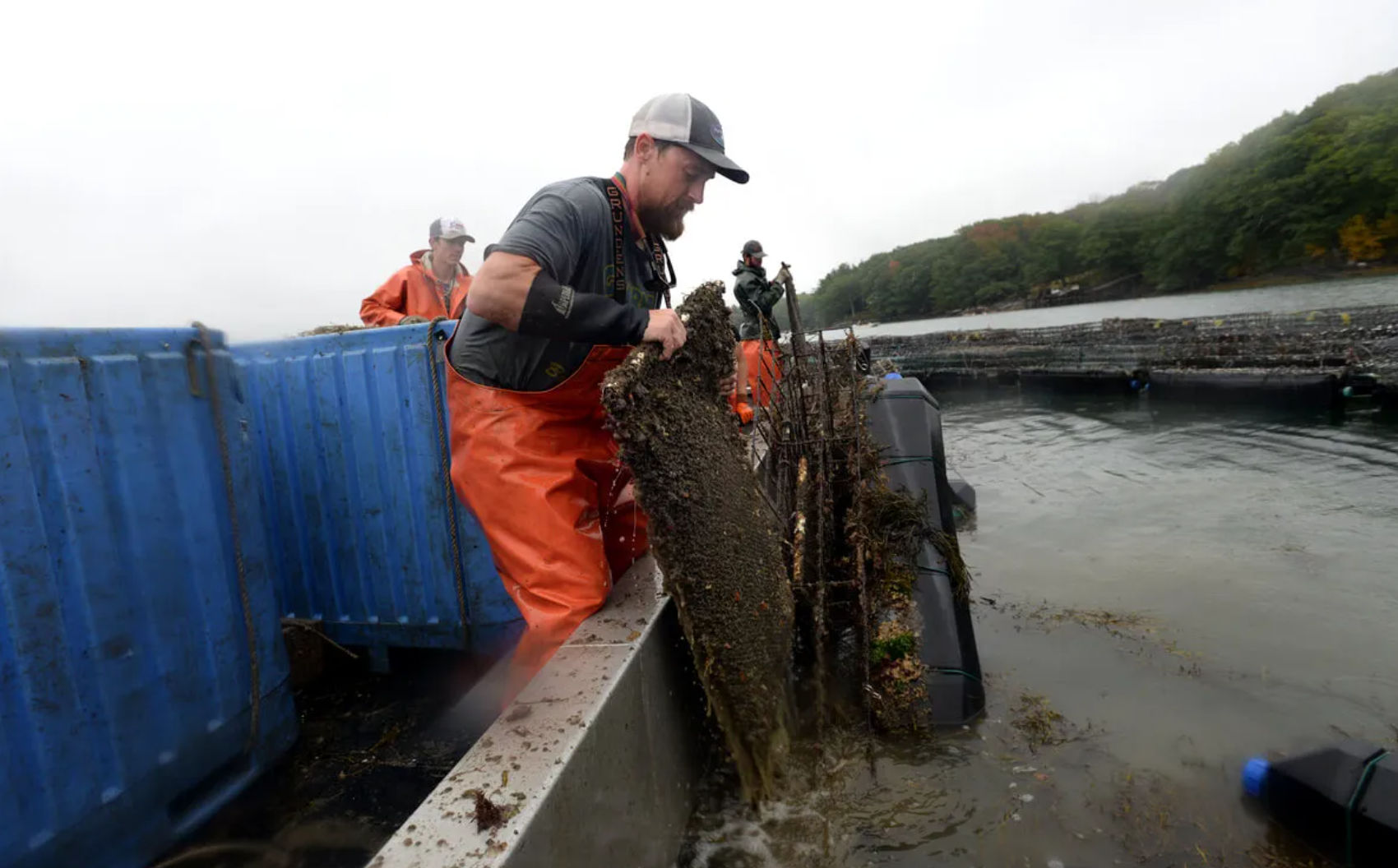 THE ENVIRONMENTALISTS AT THE HEART OF MAINE’S BOOMING OYSTER BUSINESS
THE ENVIRONMENTALISTS AT THE HEART OF MAINE’S BOOMING OYSTER BUSINESS
Bangor Daily News, 9/29/22 – “The environmental changes have threatened the livelihoods of oyster farmers who depend on clean water. But in Maine, the farmers have fought back. They have come up with solutions to improve the marine environment, hired their own researchers to understand what is happening, shifted to using renewable energy and limited their use of plastics, and turned to policy work at the state and regional level to build climate resilience. Their efforts appear to be paying off. In 2021 the state’s oyster harvest was the largest in history, growing by more than 50 percent over the previous year, according to the Maine Department of Marine Resources. The oyster business was also the most valuable it has ever been at more than $10 million, making it the fourth-most valuable marine resource in Maine.”
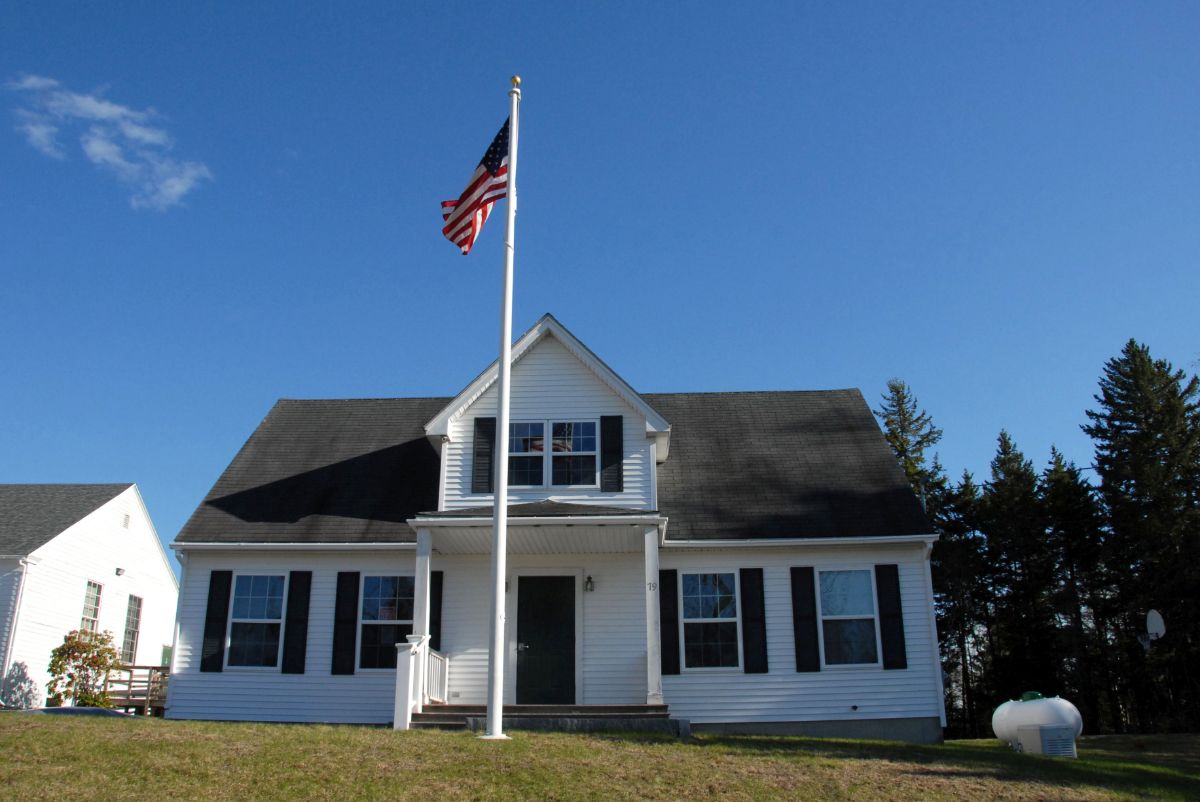 SORRENTO REJECTS AQUACULTURE MORATORIUM
SORRENTO REJECTS AQUACULTURE MORATORIUM
Ellsworth American, 9/28/22 – “At the annual Town Meeting on Sept. 24, Sorrento voters rejected a proposed moratorium ordinance on all industrial-scale aquaculture development in the waters of Sorrento. Despite widespread opposition to industrial-scale aquaculture in Frenchman Bay, voters were swayed by a local oyster farmer who highlighted some problems with the proposed moratorium [. . .] Graham Platner of Frenchman Bay Oyster Co. spoke up at the meeting about some wording in the proposed moratorium. ‘According to the language in this moratorium, we’re [Frenchman Bay Oyster Co.] industrial-scale, in fact every single aquaculture operation currently in Sorrento is,’ said Platner. ‘Everything over 5 acres this moratorium counts as industrial. That’s not an accident.'”
